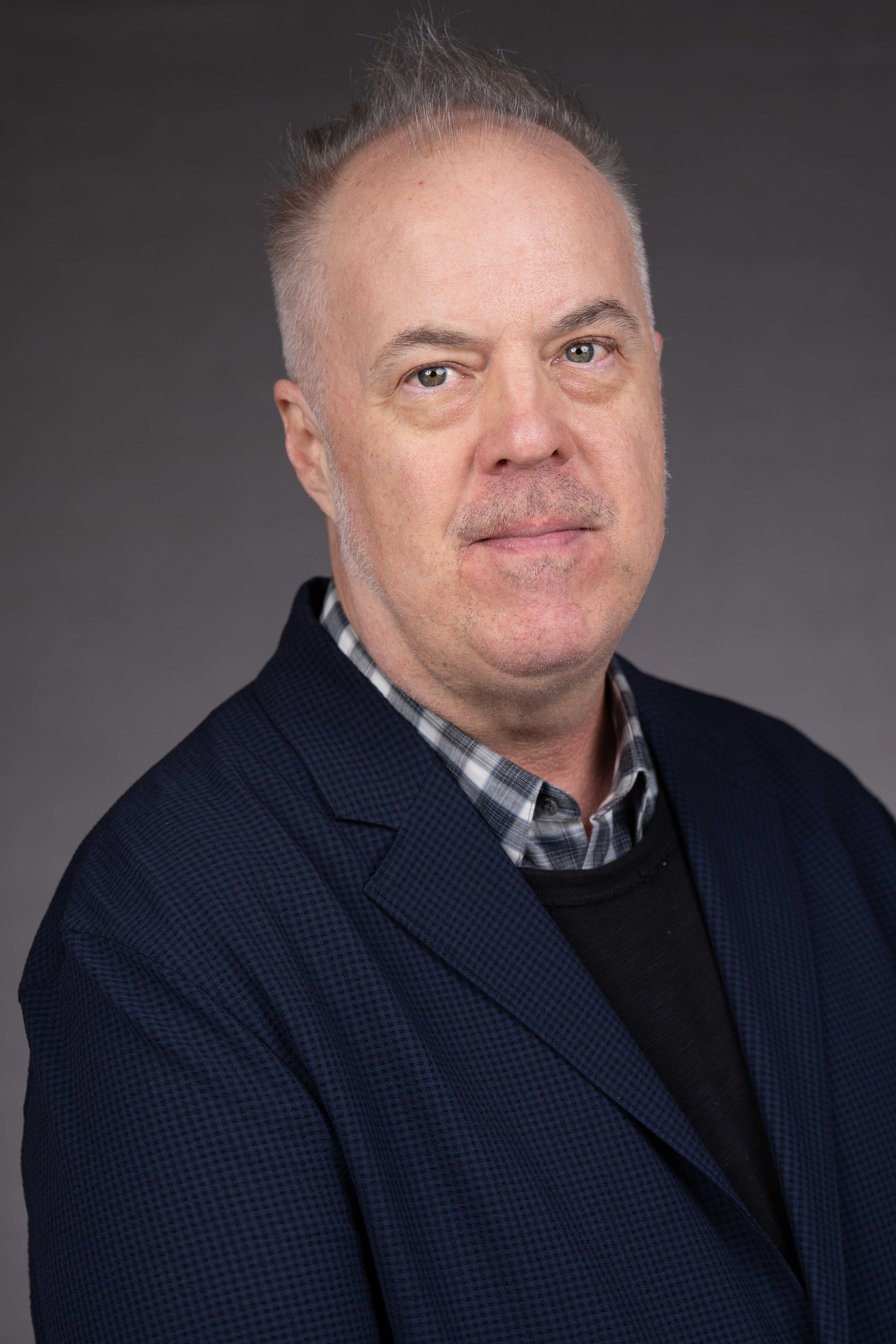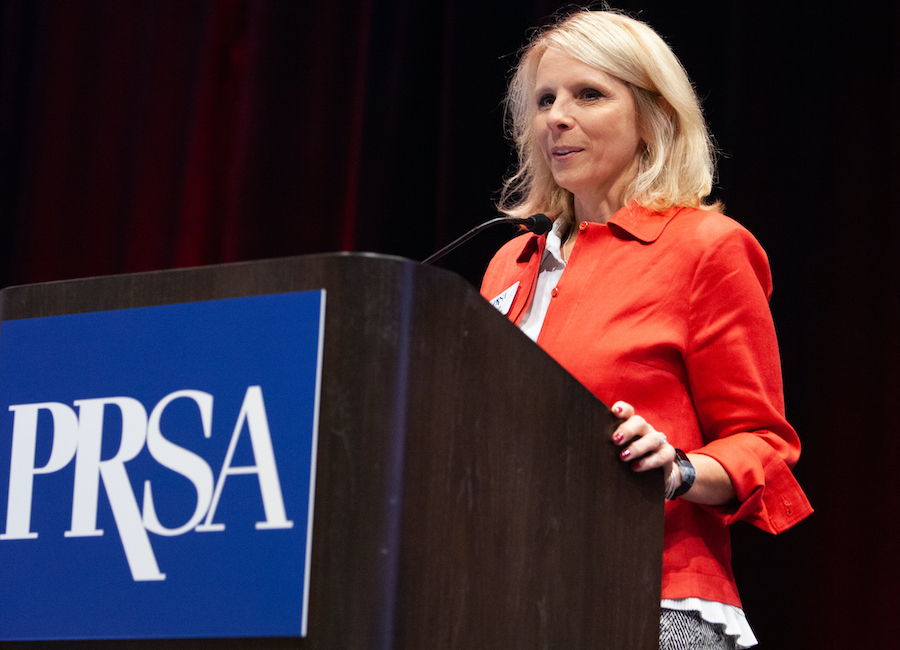Chair Michelle Olson, APR, Outlines 2021 Plans for PRSA
By John Elsasser
January 2021
Name:
Michelle Olson, APR
Current role:
Managing Director, Lambert, PRSA Chair
Location:
Scottsdale, Ariz.
Career highlights:
Starting, growing and selling my own PR firm, leading the Counselors Academy and continually striving to help clients to achieve their most challenging business goals.
Favorite downtime activities:
Cycling, hiking, baking and reading the endless stacks of magazines that come monthly.
Three dinner guests:
Martin Luther King Jr., Michelle Obama and my dad, who passed away when I was 25. I’d like to have an adult-to-adult conversation with him, at this age and the age he would have been if he were still with us.
Favorite apps:
Apps that run my daily health: MindBody, FitBit, MapMyRide, All Trails; Apps that keep me informed: APNews, Google News, AZCentral, Politico; For fun: Marco Polo
What inspired you to join PRSA?
I was editor of my high school newspaper and thought I’d be a sportswriter or a weathercaster. I went to my guidance counselor and asked her where I should go to school for journalism but confessed that I didn’t want to write all the time. She suggested I consider a career in public relations. I had never even heard of it.
She pointed me to three colleges with accredited PR programs near my home in Minnesota. I chose Minnesota State University, Moorhead. There, I got involved in the PRSSA Chapter, which became my network.
Thirty-five years later, I’m still in touch with the people who were in my PRSSA leadership committee and the many professionals I met as a student. PRSSA was so eye-opening about the profession that it was a no-brainer for me to transition to PRSA when I graduated.
My first full-time gig [after graduation] was as a sales plan coordinator in the advertising department at Target. So I didn’t transition to PRSA right away, but I kept following and dropping into meetings now and then.
I eventually left Target and started work at my first PR firm, Colle & McVoy in Minneapolis. I also joined PRSA, and got active immediately, helping the Minnesota Chapter with its annual awards program.
What has your PRSA experience been like?
PRSA has impacted every area of my career, from guiding me through professional development as a young practitioner to introducing me to peers and mentors all over the world. Most of my professional friends are PRSA members — and these are deep, lifelong friendships. They were bonds forged when I was learning my craft and they continue to grow today. The vastness of the PRSA network is invaluable. Whenever I needed help or guidance, I could pick up the phone and call anyone in the PRSA directory and they’d answer.
The network, the professional development and the emphasis on the Code of Ethics and the ethical practitioner are the reasons why I keep my membership active and have for 30-plus years now.
Why did you decide to pursue a role in volunteer leadership?
Doug Spong, APR, Fellow PRSA, was my first agency boss, and he was a fantastic leader. He and other PR leaders at Colle & McVoy modeled what I aspired to be.
Every year, he’d attend the Counselors Academy Spring Conference. Every time he came back, he’d be lit up, sharing all kinds of new insights, trends and metrics. Back then, you had to be Accredited to be in Counselors Academy and get letters of recommendation. I was 25 or 26 and made a mental note: One day I’m going to be Accredited, join Counselors Academy and it’s going to be amazing.
What happened next?
I sat for my APR exam in 1995 and joined the Counselors Academy as soon as I could. During a Spring Conference in Puerto Rico I was asked by the Counselors chair to get involved. That led to me being chair of the 2005 Spring Conference … and eventually Section chair in 2008.
Counselors Academy was so influential on my career. It was exactly what I needed — I was surrounded by agency people who were dealing with the same business challenges I was as a leader in a Phoenix agency. I also became very active in the Phoenix Chapter and eventually was president in 1999. That seems like a lifetime ago!
How would you describe your leadership style?
I’m a collaborative and authentic leader. I like to hear everyone’s viewpoints and then make decisions based on knowledge and what’s best for the organization. I ask for feedback; I provide feedback. I am direct and truthful in how I communicate with people. And I don’t have a lot of tolerance for drama and politics. There’s just too much to get done in the course of a day.
PRSA is starting year-two of its 2020-2022 Strategic Plan. In what ways have the COVID-19 pandemic and other events of 2020, including widespread social unrest and a divisive political climate, affected PRSA’s strategic priorities?
The pandemic has forced us to move faster in several areas of the strategic plan, including technology.
Given the death of George Floyd and the social unrest that followed, our transition to being a more vocal supporter of diversity and inclusion in a more systematic way happened faster — and not just our focus on removing barriers to people of color and different racial and ethnic backgrounds. PRSA, through our D&I Strategic Plan, went from seeking to diversify our ranks so that we better mirror what’s happening in the world, to being more vocal about stopping systemic racism and inequity.
I’m particularly excited to continue this work through PRSA. The D&I Committee is collaborating with the new Voices4Everyone initiative and creating content that can be used by members and shared with their organizations and communities. This is the kind of energy we need.
What are the PR profession’s top challenges today?
We saw incredible instability in the country in 2020. I saw people immediately lash out and become defensive when someone didn’t agree with their position. I jumped off social media in October and November; I just couldn’t stomach the anger and hostility.
I’m hopeful that PRSA and professional communicators can be the arbiters of better civil discourse in our communities, organizations and on social media. If not us, then who? We have the skill set to change the tenor of dialogue in America.
In 2021, communicators will have an opportunity to share the science behind the COVID-19 vaccines. PR people can get the facts out about the vaccine and its efficacy and advocate listening to public health officials. We can pre-bunk the disinformation that is likely to occur.
What we will face in 2021 are worldly challenges — the pandemic, a recession and unemployment, civil instability and social injustice — and PRSA can help our members navigate those issues within their organizations.
Bringing ethical, timely information for these challenges to their organizations and their communities will be a focus area, in addition to providing ongoing member value through professional development and networking.




